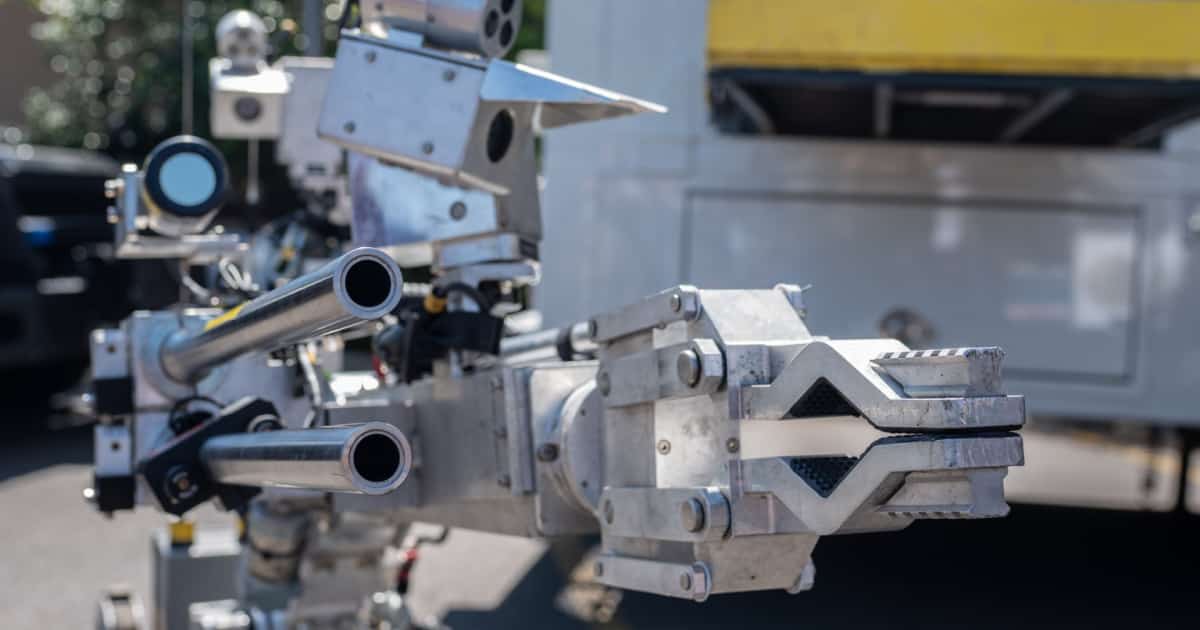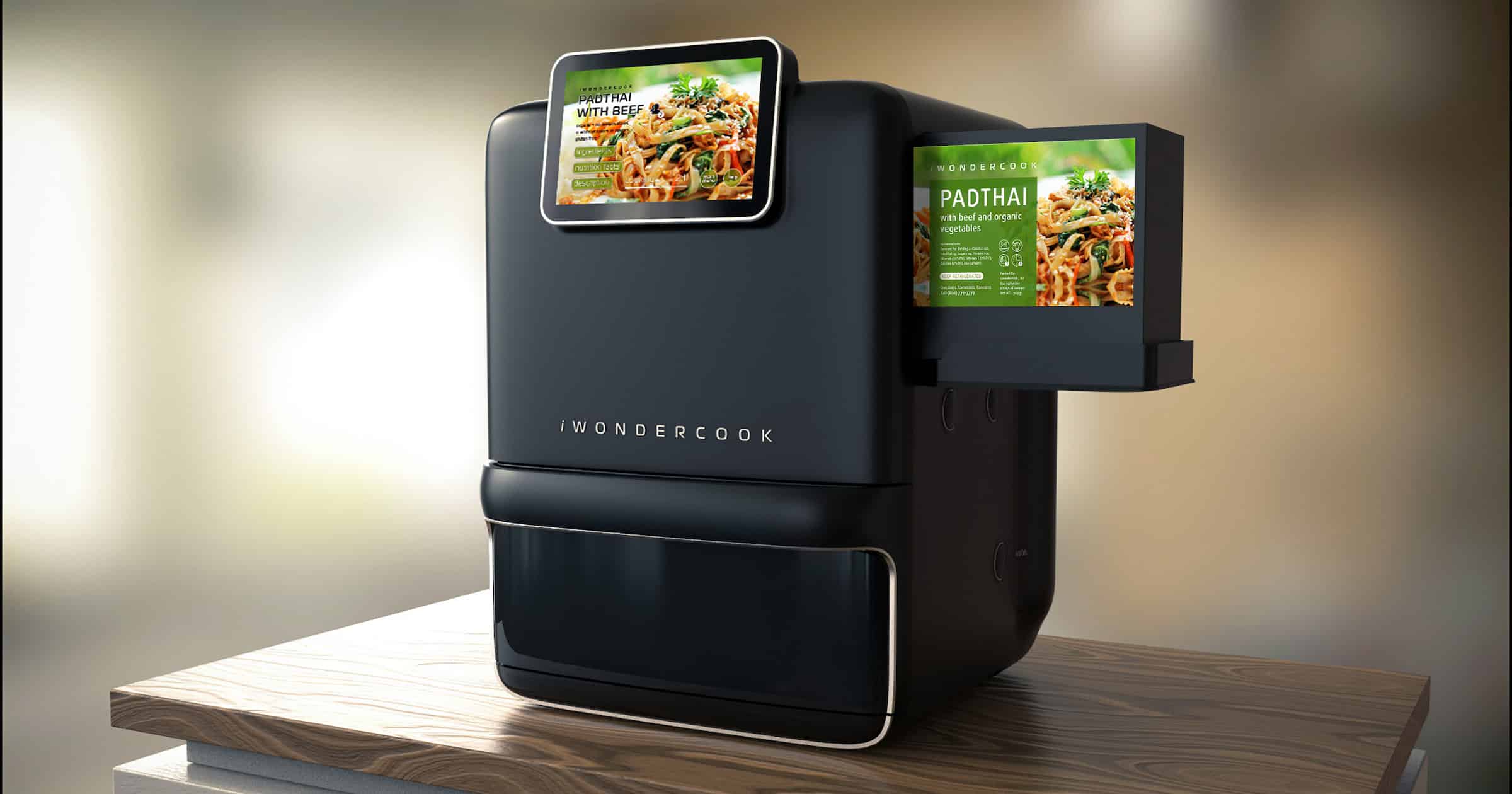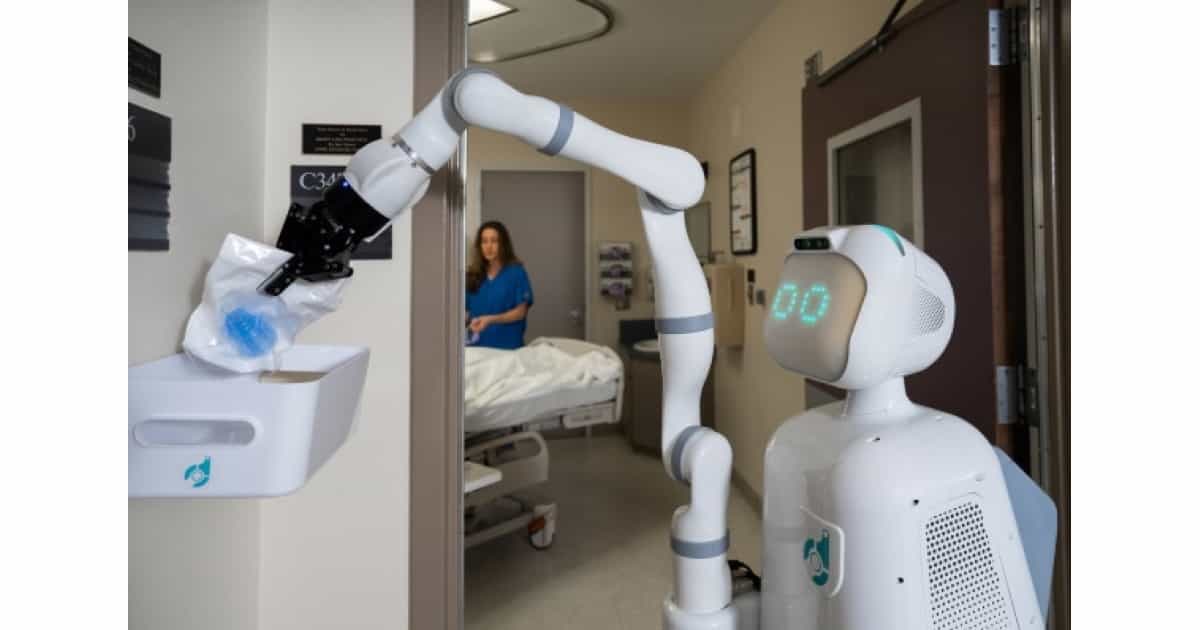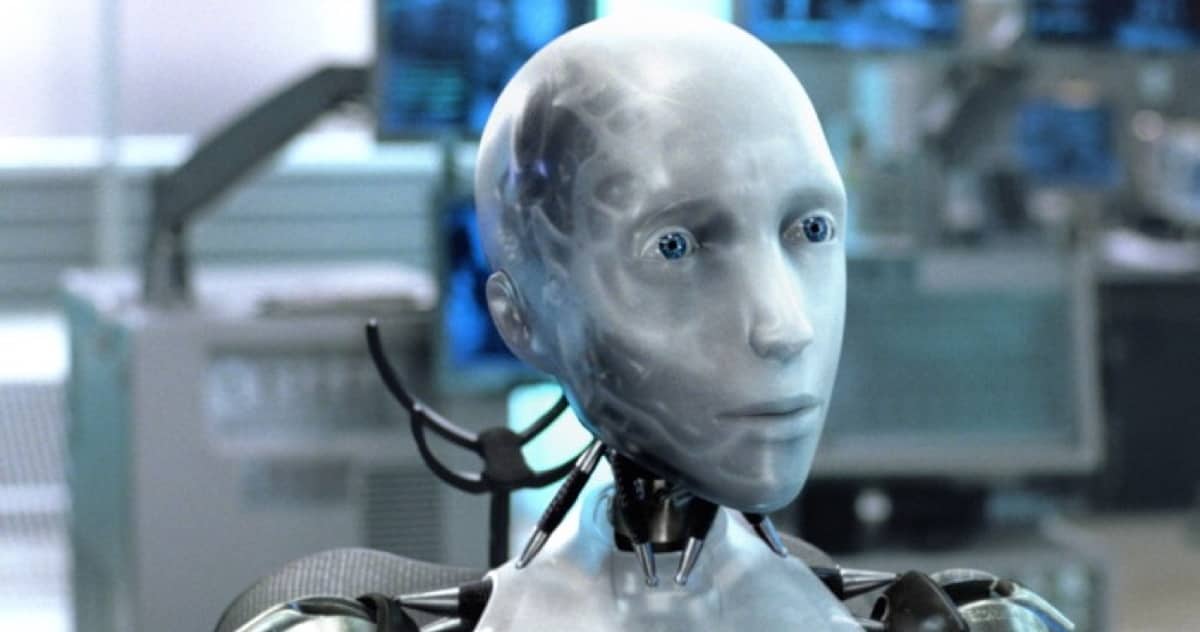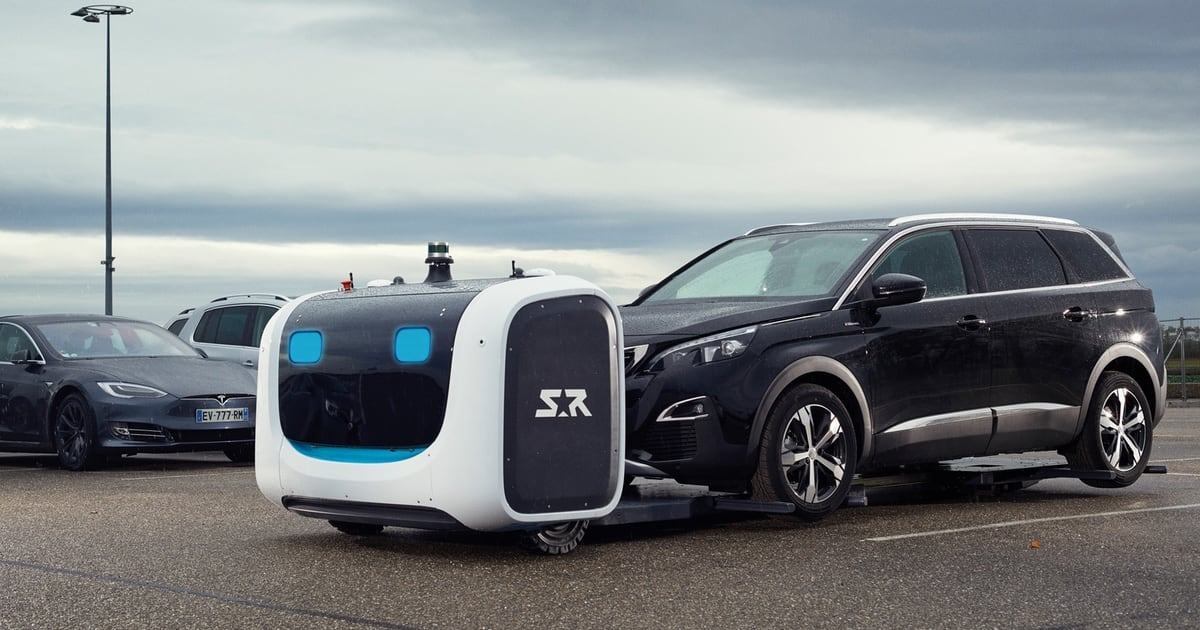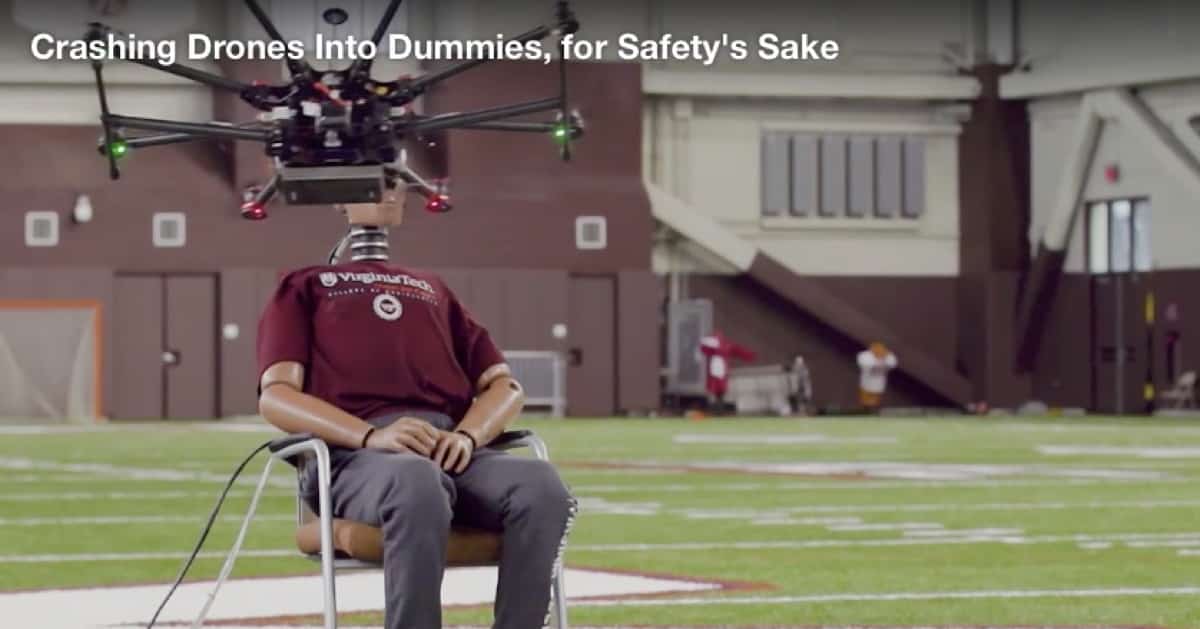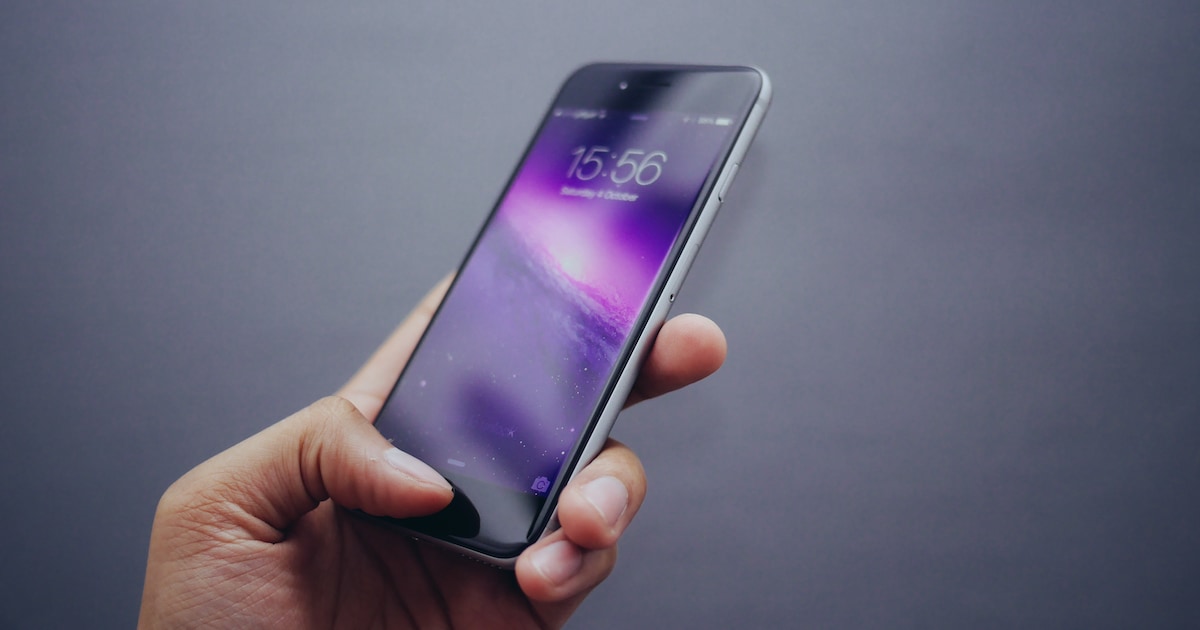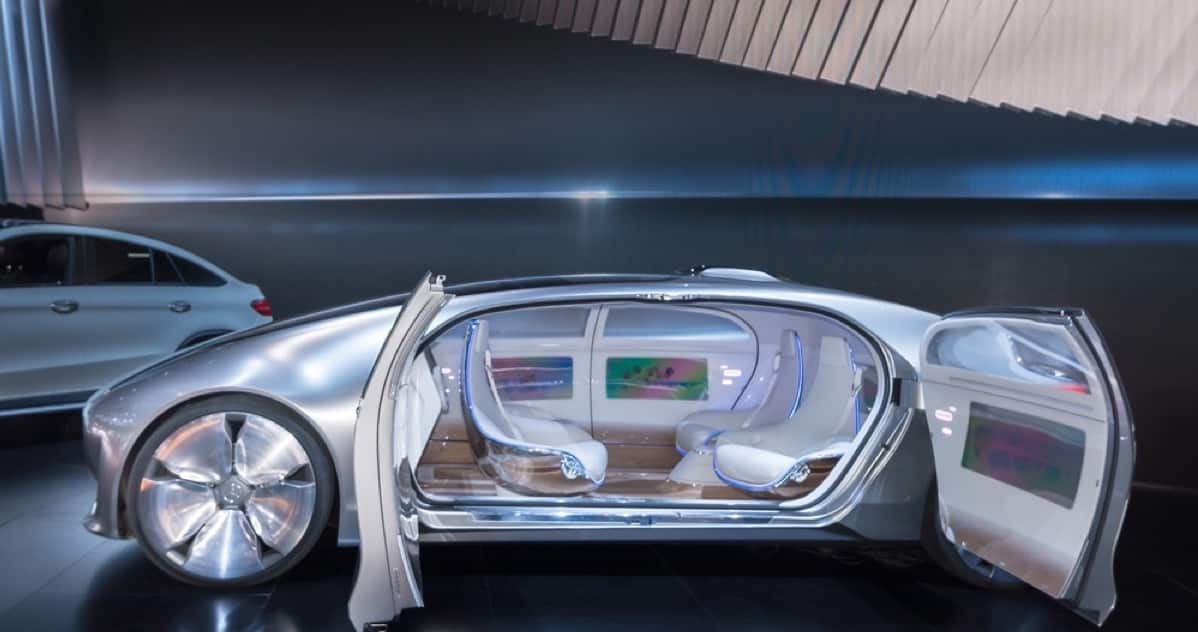RoboCop apparently taught San Francisco nothing, as police officials can now deploy robots to use deadly force against dangerous suspects.
robots
Sci-Fi Stuff We're Waiting For: From Immersive Reality to Robot Companions
Bryan and Jeff have pretty high expectations for the future of technology, and aren’t afraid to share. This week they dive into what they want to see, ranging from immersive reality to companion robots, and debate what might become reality while exploring what could go wrong.
Does a ‘Better Normal’ Mean Robots In Your Home?
Samsung’s vision of a “better normal” means robots in your home. Jeff Butts isn’t convinced that’s such a bright idea, though.
A Robotic Chef Could Be in Your Near Future
If cooking isn’t really your thing but you don’t want to dine out all the time, perhaps this robotic chef will improve your eating habits.
Future Historian Steve Carper - TMO Background Mode Interview
Steve Carper is a Future Historian, researching how the dazzling future that dominated the Golden Age of science fiction was created—starting with the technological frenzy of the late 19th century.
Steve writes a bi-weekly robot column at BlackGate.com and his latest book, published in June 2019, is Robots in American Popular Culture. This book examines society’s reactions to robots and androids such as Robby, Rosie, Elektro, Sparko, Data, WALL-E, C-3PO and the Terminator in popular culture.
Steve and I discussed his new book, covering some of the most famous robots of fiction and then all aspects of robot technology in our culture: robots as servants, enemies, lovers, children, successors and doubles. Where will the evolution of robots take our society next? Klaatu barada nikto.
An Example of How Robots Will Augment Not Replace Jobs
From FastCompany: “A hospital introduced a robot to help nurses. They didn’t expect it to be so popular”
That means nurses don’t even have to remember certain tasks that used to be part of their daily job, which is a meaningful way to reduce their cognitive load. “They don’t have to think about telling the robot to do things,” says [Vivian] Chu, who has a PhD in robotics from Georgia Tech.
This kind of optimized offloading will help workers focus on being even more productive. That is, if employers figure that out. [Image credit: FastCompany.]
Humans May Emotionally Bond With Robots
Big Think writes:
- Human-like robots may creep us, at first, but roboticists believe the more like us they appear, the more likely we’ll feel comfortable around them.
- Some studies suggest that we could develop feelings for robots, despite them not being human.
- As the loneliness epidemic continues, such robots may fill certain people’s social voids.
This is not so crazy. After all, I heard about a guy who married his iPhone.
Robots, Apple Robots, Autonomous Vehicle Robots, and Foldable Phones with John Martellaro - ACM 503
This episode is all about robots! Apple robots, military robots, delivery repots, preacher robots, manufacturing robots, and self driving car robots! Bryan Chaffin is joined by guest host John Martellaro to deep into what’s happening with robots today and what they expect for robots in the future. Put your SciFi futurist cap on for this one. They also talk about foldable phones, or as they like to think of it, the netbook of 2019.
How Far Would You Go to Protect a Robot?
From boingboing: “‘Under what circumstances and to what extent would adults be willing to sacrifice robots to save human lives?’ That was the question posed by researchers at Radboud University in Nijmegen in the Netherlands and Ludwig-Maximilians-Universitaet (LMU) in Munich.” The results have implications for how we’ll design robots with apparent human feelings.
Robots, and also Some Robots – TMO Daily Observations 2019-01-23
It’s Robot Wednesday! Charlotte Henry and John Martellaro discuss robotic car parks and the future of robotics, with host Kelly Guimont
Gatwick Airport to Trial Valet Parking Robots
LONDON – Gatwick airport is to trial the use of valet parking robots for three months, starting in August. It is hoped that the French-made devices will make parking before a holiday easier and less stressful. The Evening Standard, London’s evening paper, reported that trials are also taking place in other European airports – Paris, Lyon and Düsseldorf. An earlier 5-month trial at Paris’s Charles de Gaulle was deemed successful.
Under a trial which begins in August, travellers will leave their car in a dedicated drop-off zone and summon a droid, booked by app, on a touch-screen. As the customers are shuttled to the terminal, the battery-powered robot rolls up, slides a forklift-style ramp under the chassis, and uses military-grade GPS to ferry it to a secure bay — all without needing the keys.
Introducing Salto, Another Terrifying Robot
Robot technology often invokes sophisticated mechanisms, in order to perform a task, that mimic those of living creatures. When done right, the visual effect can be startling, even creepy. Mark Serrels writes: “Meet “Salto-1P” a robot being designed by the Biomimetic Millisystems lab at Berkeley, University of California. The work is being supported by an Army Research Office Grant, which makes me wonder if one of these things is gonna kill me one day.” Better check under your bed again, Mark.
The Story and Analysis of Apple's Trillion Dollar Journey
Here’s a thumbnail sketch of Apple’s journey to a trillion dollar valuation — and why it matters to investors and customers.
TMO Background Mode Encore #4 Interview with Science Communicator Dr. Kiki Sanford
Dr. Kiki Sanford is a neurophysiologist, a popular science communicator and creator of This Week in Science (TWIS) podcast and radio show. This is her fourth appearance here. In this episode, we chat about some some very interesting recent topics on TWIS. 1) Researchers showed that mini human brains implanted into mouse brains survived and functionally integrated into the host tissue. 2) Magnetoreception in birds is possible thanks to a protein in their eyes. They may actually have a heads-up display in their eyes for the Earth’s magnetic field. 3) Amazon’s announcement of its Vesta family robot project. 4) A new, non-invasive patch is being developed to allow diabetics to monitor their gluscose levels. Kiki has a special way of inspiring us to learn about science, so don’t miss BGM’s most popular guest.
Swift Playgrounds 2 Adds Third Party Subscriptions, New Robots
Apple’s educational coding environment Swift Playgrounds 2 for iPad is available now with support for subscribing to playgrounds from third-party developers and additional robots.
Apple Opens Registration for Apple Camp and Today at Apple Kids Hour
Apple Camp, which is Apple’s annual summer creative learning series for kids, is open for registration.
Apple and Robots, Latest iPhone 8 Leak - TMO Daily Observations 2017-04-14
Robots are finding their way into our homes, and John Martellaro thinks Apple needs to set the bar for quality and security. John, along with Bryan Chaffin join Jeff Gamet to share their thoughts on Apple’s place in the personal robot market, plus they look at today’s iPhone 8 leak showing the Touch ID sensor embedded in the display.
A Robotics Competition You Should Totally Check Out
If you love robots, there are a bunch of robotics competitions happening across the United States right now. Jeff Butts has all of the details about this steamworks-themed event pitting high school students against the clock and their opponents.
What Happens when a 55 Pound Drone Hits Your Head?
We write here a lot of about small drones. Amazon wants to deliver packages with drones. Drones have taken breathtaking aerial views of Apple Park. But what happens when one of the larger drones accidentally slams into a human being? Time for the automotive crash-test dummies to step up and tell the story! Well, the instrumentation does. Bloomberg has a great story on “Crashing Drones into Test Dummies for Safety” Watch a drone disintegrate as it strikes a crash-test dummy. It’s a battle of the bots. All for human safety, of course.
The Thinking Behind a Female Voice for Siri
Siri started out with a female voice exclusively, but now it can be changed to male. Alexa uses only a female voice. Cortana’s voice, for now, is strictly female. Why is that? Is it sexism? Is it for better intelligibility? John looks into the matter.
Autonomous Vehicles Might Develop Superior Moral Judgment
Much has been written now about the moral guidance for autonomous cars and trucks. It’s a difficult problem that involves quantifying then instantiating into software the logic of life and death decisions. It would be nice for society to have more time to ponder, but the pace of technology leaves us precious little time for that. Machines are going to make moral decisions very soon. Shall we let them?
Are Humans Becoming Robotic Faster than Robots Can be Human-like?
People are walking around, staring at their iPhones, mesmerized by messages and selfies. They’re reading lurid news, glued to YouTube videos and immersing themselves in Pokémon GO. Is this robotic behavior slowly replacing typical human behavior? Is it happening faster than robots can become more human? Could robots someday role reverse and become more human than we used to be? Page 2 of Friday’s Particle Debris expands the initial discussion and leaves us to ponder.
